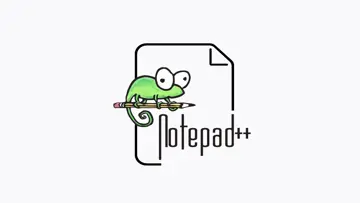PHP: A Versatile Powerhouse for Web Development
PHP remains the go-to scripting language for server-side programming, offering developers flexibility and a robust community support system.
Comprehensive Overview of PHP: A Leading Server-Side Scripting Language
PHP is a widely adopted server-side scripting language renowned for its versatility in web development. Developed by the PHP Development Team, PHP, which stands for "Hypertext Preprocessor," seamlessly integrates into HTML to facilitate the creation of dynamic and interactive web pages.
Cross-Platform Compatibility and Flexibility
One of PHP's significant strengths is its cross-platform compatibility, allowing it to run smoothly on various operating systems including Windows, macOS, Linux, and Unix. This flexibility enables developers to deploy PHP applications across diverse server environments with ease.
Database Integration Capabilities
PHP's robust support for multiple databases such as MySQL, PostgreSQL, Oracle, and Microsoft SQL Server makes it an ideal choice for building database-driven web applications. Its extensive database connectivity simplifies complex data management tasks.
Rich Libraries and Developer Resources
The language benefits from a vast array of libraries and comprehensive documentation provided by the official PHP website. These resources facilitate efficient learning and rapid development, catering to both beginners and experienced programmers.
Ongoing Development and Community Support
Continuous updates by the PHP Development Team and active community involvement ensure that PHP remains current with modern web development demands. Regular enhancements introduce new features, maintain security, and improve performance.
Why Choose PHP for Web Development?
- Versatile and adaptable for various web projects
- Cross-platform support for deployment flexibility
- Strong database integration capabilities
- Extensive libraries and extensive documentation
- Active development community dedicated to ongoing improvements
Overview
PHP is a Open Source software in the category Web Development developed by PHP Development Team.
The users of our client application UpdateStar have checked PHP for updates 31 times during the last month.
The latest version of PHP is 8.4.10, released on 07/02/2025. It was initially added to our database on 10/29/2007. The most prevalent version is 5.3.0, which is used by 100% of all installations.
PHP runs on the following operating systems: Windows. The download file has a size of 16MB.
Users of PHP gave it a rating of 5 out of 5 stars.
Pros
- PHP is an open-source and free programming language which makes it accessible to a wide range of developers.
- PHP has a large community of developers who constantly contribute to its improvement and provide support to fellow developers.
- PHP is cross-platform and compatible with all major operating systems like Windows, Linux, macOS, and Unix.
- PHP has a vast number of frameworks like Laravel, Symfony, and CodeIgniter which make it easier to develop complex web applications.
- PHP is known for its speed and performance, making it suitable for high-traffic websites and applications.
- PHP offers seamless integration with various databases like MySQL, PostgreSQL, and Oracle.
- PHP has a wide range of libraries and extensions that help developers in building feature-rich and interactive web applications.
Cons
- PHP has a loose type system which can lead to potential bugs and errors if not handled carefully.
- PHP code can sometimes be cluttered and difficult to maintain, especially in larger projects.
- PHP has a history of security vulnerabilities, so developers need to follow best practices to ensure the security of their applications.
- PHP lacks some advanced features found in other programming languages like static typing and strict error handling.
FAQ
What does PHP stand for?
PHP stands for Hypertext Preprocessor.
What can PHP be used for?
PHP is mainly focused on server-side scripting, but it can be used for command line scripting and writing desktop applications as well.
What platforms does PHP run on?
PHP runs on various platforms, including Windows, macOS, Linux, UNIX, and others.
What are the benefits of using PHP?
Some benefits of using PHP include it being free, open-source, widely supported, easy to learn and use, and having a large community of developers and users.
What are some popular PHP frameworks?
Some popular PHP frameworks include Laravel, Symfony, CodeIgniter, CakePHP, and Yii.
What are some popular content management systems built with PHP?
Some popular content management systems built with PHP include WordPress, Drupal, Joomla!, and Magento.
What is the latest version of PHP?
As of September 2021, the latest version of PHP is 8.0.11.
What is the recommended way to install PHP?
The recommended way to install PHP is through a package manager or distribution-specific repositories. Alternatively, you can download the source code and compile it yourself.
How can I contribute to the development of PHP?
You can contribute to the development of PHP by submitting bug reports, patches, or feature requests, participating in mailing lists and forums, or contributing to the documentation.
Is PHP still relevant today?
Yes, PHP is still widely used and relevant today, with a large community of developers and users. It is used for building websites, web applications, and other software projects.

Elena Angelini
I'm Elena, your go-to software reviewer at UpdateStar and tech enthusiast. Whether you're a user seeking the latest software titles or software news I've got you covered. When I'm not diving into the latest software, you can find me exploring nature trails, camping under the stars, or competing in online multiplayer games. My reviews are designed to be fun, engaging, and packed with all the details you need to make informed decisions.
Latest Reviews by Elena Angelini
- Effortlessly manage your CyberLink software with CyberLink Application Manager!
- Efficient Hard Drive Management with Paragon Festplatten Manager™ Advanced!
- Enhance Collaboration with open-board by Xavier Nayrac
- Effortless Installation with IprtSetup
- AnyMP4 Video Converter: Versatile Tool for All Your Media Needs
Installations
Latest Reviews
|
|
PDFSigner
PDFSigner: Seamlessly Secure Your Documents |
|
|
PhotoMirage
Bring your photos to life with PhotoMirage by Corel Corporation. |
|
|
GPU Tweak III
Experience Maximum Performance with GPU Tweak III by Asus! |
|
|
IPTVSmartersPro
IPTVSmartersPro: A Premium IPTV Viewing Experience |
|
|
Legacy Games Launcher
Legacy Games Launcher offers a seamless gaming experience for classic game enthusiasts |
|
|
Norton Antivirus 2005
Norton Antivirus 2005: Protect Your Computer with Peace of Mind |
|
|
UpdateStar Premium Edition
Keeping Your Software Updated Has Never Been Easier with UpdateStar Premium Edition! |
|
|
Microsoft Edge
A New Standard in Web Browsing |
|
|
Microsoft Visual C++ 2015 Redistributable Package
Boost your system performance with Microsoft Visual C++ 2015 Redistributable Package! |
|
|
Google Chrome
Fast and Versatile Web Browser |
|
|
Microsoft Visual C++ 2010 Redistributable
Essential Component for Running Visual C++ Applications |
|
|
Microsoft Update Health Tools
Microsoft Update Health Tools: Ensure Your System is Always Up-to-Date! |





